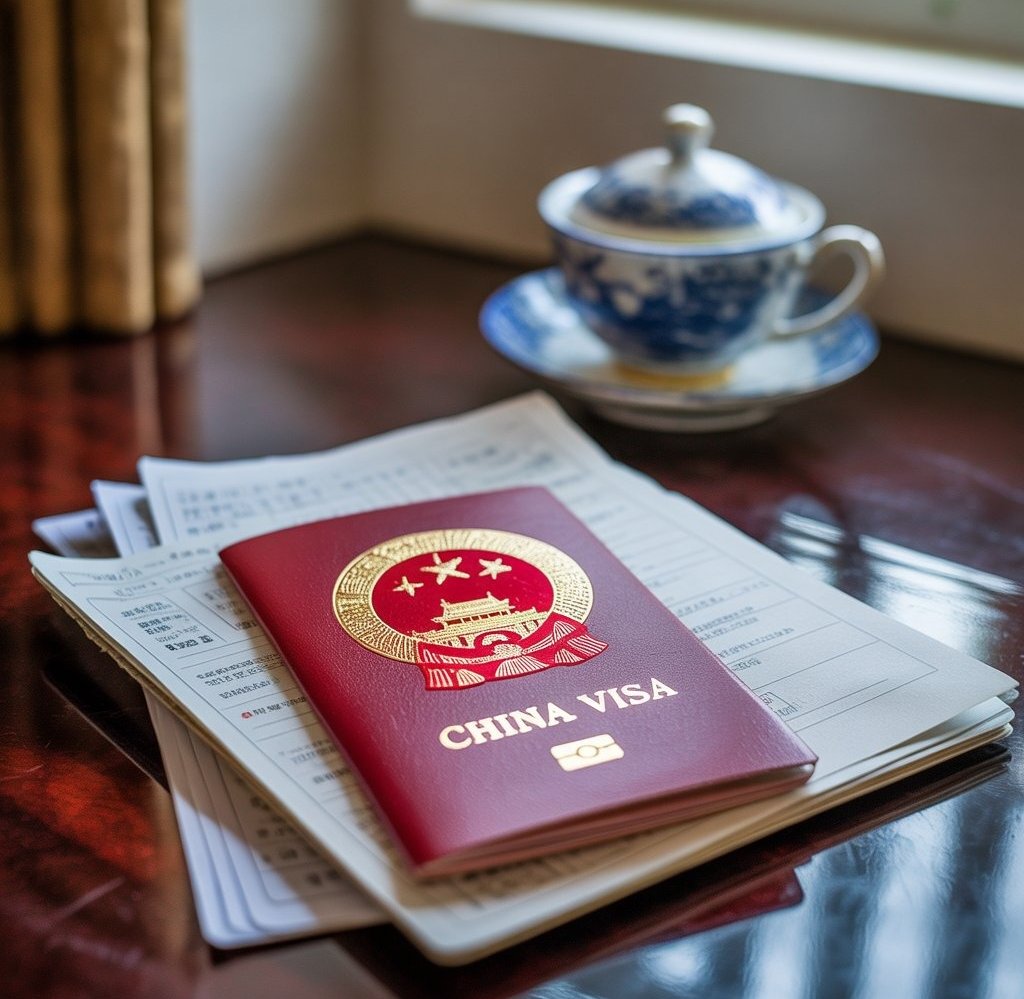Importance of China Embassy Attestation for Travelers
Discover the top reasons why China embassy attestation is crucial for travelers and professionals. Learn how proper embassy attestation can streamline your travel process and ensure smooth experiences abroad.
11/7/20257 min read


Understanding Embassy Attestation
Embassy attestation refers to the official verification process undertaken by an embassy or consulate to confirm the authenticity of documents intended for use in a foreign country. This procedure is critical for both travelers and professionals who require validation of their documents to facilitate their international endeavors. Attestation acts as a safeguard ensuring that the documents presented can be trusted and are in compliance with the legal standards of the destination country.
The significance of embassy attestation cannot be overstated. In the realm of international travel, travelers may need their passports, visas, and other travel documents attested to avoid legal complications upon arrival. Similarly, for professionals engaging in business abroad, documents such as contracts, qualifications, and personal identification often require attestation to ensure legitimacy and acceptance by foreign authorities and institutions.
The process of embassy attestation generally involves several key steps. First, the documents must be prepared, often requiring notarization and verification by local government authorities. Subsequently, these documents are submitted to the embassy where officials conduct thorough checks to ascertain their authenticity. Only then does the embassy affix its seal or stamp, signifying that the documents are officially recognized.
It is essential to note the difference between attestation and legalization. While both processes confirm the authenticity of documents, legalization involves a broader process that may require additional verification from multiple authorities before an embassy's final approval. Consequently, understanding these distinctions is crucial for anyone intending to travel or conduct business internationally, as they navigate the complexities of document verification. Achieving proper embassy attestation ensures a smoother experience across borders.
Legal Recognition of Documents
In the context of international travel and professional engagements, the importance of legal recognition of documents cannot be overstated. For individuals planning to travel to China, embassy attestation serves as a crucial process that validates the authenticity of various documents. This validation is essential, especially when presenting educational certificates, work permits, and business agreements to local authorities or institutions. Without proper attestation, documents may not be recognized, which can lead to complications and delays in fulfilling visa requirements or other legal obligations.
Firstly, educational institutions in China often require proof of the authenticity of degrees and certificates for admission purposes. Attestation by the embassy assures institutions that the documents presented are genuine and have been verified according to international standards. This step not only expedites the admission process but also enhances the credibility of the applicant’s academic qualifications.
Secondly, for professionals seeking employment in China, obtaining a work permit is a critical step. The Chinese authorities mandate that foreign professionals submit attested documents to ensure regulatory compliance. Failure to present properly attested documents may result in the rejection of work visa applications, hampering career opportunities in the country. The embassy's role in this process is to provide a layer of verification that signifies the authenticity of the individual’s qualifications and employment history.
Furthermore, in the realm of international business, agreements and contracts often require embassy attestation to facilitate trade and establish trust between foreign parties. Having a document attested not only helps in complying with Chinese legal requirements but also serves as a testament to the legitimacy and reliability of the parties involved. Thus, to navigate legal processes effectively, embassy attestation stands as an indispensable requirement for anyone engaging with Chinese authorities.
Facilitating Visa Applications
In the context of international travel and professional endeavors, obtaining a visa is often a critical step for individuals seeking entry into countries such as China. A key aspect of this process involves the attestation of essential documents, which plays a significant role in facilitating visa applications. Proper document attestation can not only streamline the application process but also enhance the likelihood of a successful outcome.
Visa categories such as tourist visas, business visas, student visas, and work visas often require a variety of documents to be submitted alongside the application. Commonly requested documents include educational certificates, proof of employment, financial statements, and personal identification. Ensuring these documents are duly attested is crucial, as it validates their authenticity and eligibility. When documents carry the appropriate stamps and seals from relevant authorities, they provide assurance to the visa officers that the information presented is accurate and trustworthy.
The presence of attested documents simplifies the verification process for visa authorities, reducing the risk of delays or complications that may arise from insufficient documentation. As a result, applicants can better navigate the visa application procedures while increasing the likelihood of receiving timely approval. Moreover, certain types of visas might explicitly require attested documents, making it a non-negotiable step for anyone wishing to travel or relocate to China.
In addition to expediting the process, having the necessary documents attested demonstrates a level of preparedness and compliance with established regulations. This can positively influence a visa officer's perception of the applicant, thereby further increasing their chances of obtaining the desired visa. Overall, document attestation is an essential component that serves to facilitate smoother visa applications for travelers and professionals alike.
Building Credibility in Business Transactions
In an increasingly interconnected global economy, establishing trust in business transactions is essential, particularly when engaging with partners or clients in China. One of the most effective ways to enhance this trust is through China embassy attestation of relevant documents. This process involves a thorough verification of authenticity by the embassy, signifying that the documents presented are legitimate and reliable.
When documents such as contracts, powers of attorney, or educational qualifications are attested, they carry greater weight in the eyes of potential business partners and investors. This attestation assures stakeholders that the information provided is accurate, which is crucial in a landscape where misrepresentation can lead to significant legal and financial repercussions. Moreover, having your documents attested by the Chinese embassy demonstrates a level of professionalism and commitment that is appreciated in Chinese business culture.
The importance of credibility cannot be overstated when it comes to conducting business in China. Many Chinese companies and investors prefer to deal with partners who can present legally verified documents. This preference stems from a desire to reduce risk and ensure that they are engaging with reliable entities. By securing embassy attestation, foreign businesses not only comply with local requirements but also strengthen their credibility, making them more attractive to potential partners.
Furthermore, the process of attestation serves as a form of quality control, ensuring that all represented facts in a document are validated by a recognized authority. This added layer of verification can significantly minimize misunderstandings and disputes during negotiations. In conclusion, securing China embassy attestation is a strategic move for professionals and businesses looking to establish credibility and foster trust in their transactions within the Chinese market.
Ensuring Compliance with Local Regulations
China's legal framework regarding document authentication plays a crucial role in international travel and professional engagements. For travelers and professionals intending to operate in China, ensuring compliance with local regulations is not just a procedural matter; it is a legal necessity. The process of embassy attestation serves as a formal declaration that a document has been verified and is legally recognized within the borders of China.
Non-compliance with these regulations can lead to significant repercussions. Without proper attestation, essential documents such as academic certificates, business agreements, and personal identification may not be accepted by local authorities, institutions, or business partners. This lack of acceptance can result in delays, legal disputes, or even the denial of entry into the country. Furthermore, if a traveler or professional attempts to use unverified documents, they expose themselves to the risk of legal penalties, which could include fines or imprisonment, depending on the severity of the infraction.
The importance of adhering to local laws cannot be overstated. Foreign laws and regulations are often stricter regarding documentation, and understanding them is vital. Travelers and professionals must, therefore, ensure that their documents undergo the necessary embassy attestation, confirming that they comply with both international standards and local legal requirements.
Ultimately, by prioritizing compliance with the relevant local regulations through proper document attestation, travelers and professionals can avoid potential legal challenges and foster smoother interactions with Chinese authorities and institutions. This not only streamlines the processes involved in travel and business but also enhances the reputation and credibility of the individuals in question.
Protecting against Fraud and Misrepresentation
The significance of embassy attestation cannot be overstated, particularly when it comes to safeguarding individuals and organizations from fraud and misrepresentation. In an increasingly interconnected world, the likelihood of encountering dubious documents has risen, posing a threat to those who use them in their dealings. Fraudulent documentation can lead to severe repercussions, ranging from legal issues to financial losses, highlighting the urgent need for proper verification through processes such as embassy attestation.
Unverified documents can result in scenarios where individuals find themselves at a disadvantage, often facing hurdles while attempting to secure visas, employment, or educational opportunities abroad. For instance, several travelers have reported difficulties due to presentation of fake degrees or unsanctioned financial statements, which led to deportations or barring from entry into various countries. In these cases, without proper attestation, individuals and organizations are left vulnerable to exploitation by dishonest parties.
Embassy attestation serves as a robust means of verification for documents, assuring that they are legitimate and meet specific standards recognized by other governments. The process involves a thorough examination of the documents by the embassy, which helps confirm the authenticity of the information contained within. This protective measure not only benefits individuals but also enhances the credibility of businesses operating internationally, as it reassures partners and clients of the integrity of the documentation presented.
The presence of official stamps and seals from an embassy elevates the level of trust in transactions across borders. Therefore, went through the attestation process, parties can mitigate the risks associated with fraud and misrepresentation, paving the way for smoother and more reliable engagements while traveling or seeking business opportunities abroad. This crucial step aids in fostering a more secure environment for all involved, solidifying the importance of China embassy attestation in today’s global landscape.
Navigating the Attestation Process
Navigating the embassy attestation process is crucial for those planning to travel to China for professional or personal reasons. The process may seem daunting, but with the right guidance, it can be tackled with ease. The first step in this procedure involves determining the type of document that requires attestation, as different documents, such as educational certificates, marital status documents, or employment letters may have unique requirements. Once the relevant documents are identified, it is essential to prepare them for submission.
Next, ensure that all documents are properly notarized before proceeding to the embassy. Generally, a notarized copy is required for submission. It is advisable to check for any specific guidelines provided by the Chinese embassy regarding document formatting, as adhering to these guidelines will help streamline the attestation process.
When it comes to fees, it is prudent to check with the embassy or its official website for updated fee structures. Fees can vary depending on the type of document being attested and the processing speed chosen. Standard processing can take several days, while expedited services may incur additional fees but result in quicker turnaround times.
Thorough preparation of your documentation is the key to a smooth attestation experience. Ensure that your documents are complete, accurate, and organized. Creating a checklist based on the embassy’s requirements can be a helpful strategy to avoid missing any critical paperwork. Additionally, consider reaching out to professionals or agencies that specialize in embassy services if you encounter difficulties or need further assistance.
By following these guidelines, individuals can effectively navigate the embassy attestation process, ensuring their documents are ready and compliant for use in China.
